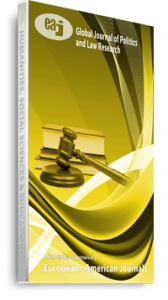Human rights and good governance are the salient elements of a well-functioning state and society. They are also mutually reinforced; for human rights principles provide a set of values to guide the work of government and other political and social actors. Good governance on the other hand is a key to sustainable development and without good governance human rights cannot be respected in a sustainable manner. The three concepts thus work hand in hand. However in countries like Nigeria where democracy and rule of law have not been fully nurtured the move towards implementing human rights and good governance principles into the daily functioning of state institutions can be a huge challenge. The probability that a nation will achieve the aims of sustainable development and participative democracy are all the greater if human rights are respected. The aim of this article is to ascertain the level of observance of respect of the human rights in Nigeria by the government authorities and other social actors and the impact such observance or otherwise has on governance and development in Nigeria. It is observed that though the Constitution of the Federal Republic of Nigeria, 1999 (as amended) makes an elaborate provision on human right, and that Nigeria has acceded to numerous international instruments on human rights, the problem of bad governance with the resultant inadequate development has a link with failure of the authorities that be, to adequately appreciate the requirements of human rights and apply them in governance. Furthermore a lot of the basic human rights as contained in Chapter II of the Nigerian Constitution are not enforceable, thus failure of the authorities to observe them cannot be questioned. It is advocated.
Keywords: Democracy, Good Governance, Government, Human Rights, Sustainable Development

